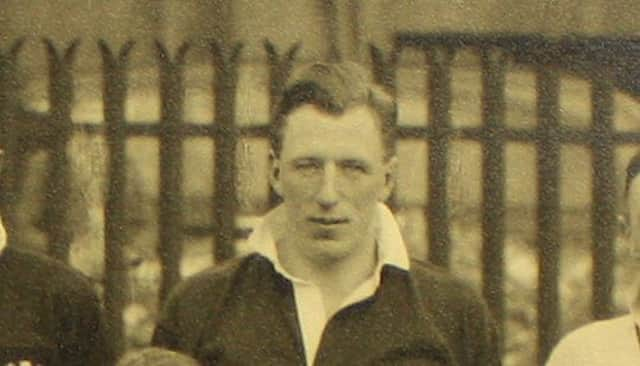Obituary: Dr Robert Capel Taylor


Bob Taylor, who died just weeks after celebrating his 91st birthday, distinguished himself in two very different Glasgow institutions.
As a student at Glasgow University in 1951, he was one of two Gilmorehill undergraduates – Bob Gemmill, who died earlier this year was the other, in the under-rated Scotland team which slayed the Welsh dragon in one of the most memorable rugby international victories in Scottish history.
Advertisement
Hide AdAdvertisement
Hide AdThen, after graduating, he gave years of service to the Victoria Infirmary, as a consultant anaesthetist.
The son of a surgeon, the young Bob Taylor longed to follow in the footsteps of a father who had died when he was only ten. He discovered an alternative “family” when he went to Glenalmond College as a boarder and continued his relationship with his old school as a keen member of the Old Glenalmond Association.
When he finished his schooling, his medical ambitions had to be put on hold, as he was commissioned into the Royal Engineers, serving in the Middle East, Persia (now Iran), Iraq and Palestine, before completing his wartime service in India, where he remained until being demobbed in 1947.
Back in Glasgow, aged 23, he was finally able to follow his medical ambitions, at Glasgow University. He also played rugby, for the amalgamated Kelvinside-West club, to such good effect that he was soon playing for Glasgow in Inter-City matches.
His form in the three international trials of season 1950-51 had him marked out as a future Scotland cap, and some in the media were surprised when he was not capped in the opening international of the 1951 Five Nations, against France in Paris.
Scotland lost that one and, for the next match, against Wales, Bob Taylor and winger Robert Gordon of Edinburgh Wanderers were handed debuts.
This match would go down in Scottish rugby history. The Welsh, backed by a massive travelling support and with 11 British Lions in their ranks, were the hottest of favourites. But, with Taylor and his back-row colleagues Douglas Elliot and skipper Peter Kininmonth to the fore, the smaller Scottish pack harried them relentlessly.
Scotland led 3-0 at the interval, then Kininmonth kicked one of the great international dropped goals to double the Scottish lead, before two Gordon tries – the second the result of Elliot and Taylor dribbling through the Welsh defence in an old-fashioned Scottish “foot rush”, before Taylor slipped the ball past the visiting full-back for Gordon to dive on the loose ball – put the match beyond Wales.
Advertisement
Hide AdAdvertisement
Hide AdScotland’s surprise 19-0 win was greeted with a combination of joy and disbelief and Taylor, the 620th player to wear the thistle, kept his place for the two remaining matches, against Ireland and England.
However, that win over Wales would be Scotland’s last victory for four years and 17 games and, after the third in this run of defeats – the 44-0 “Murrayfield Massacre” at the hands of the touring South Africans, in November, 1951, Bob Taylor’s international career was over after just four caps.
He graduated in 1952, but his ambition, to follow his late father into surgery, had to be abandoned.
With a new wife, Hazel, who predeceased him in 2013, he had to be earning quickly, so he abandoned surgery to become an anaesthetist – initially at the Western Infirmary in Glasgow, before, in 1957, he switched to south of the River Clyde – to the Victoria, where he remained, rising to the rank of consultant anaesthetist, prior to his retirement.
He and Hazel were never blessed with children, but he lavished love on his wider family and on a succession of black Labradors, essential companions as his main sporting pursuits became shooting, mainly pheasants, and deer-stalking.
Bob continued to support West of Scotland after the severing of the alliance with Kelvinside, as well as his old school.
In retirement, he and Hazel lived outside Balloch, where he remained until, in the final months of his life, failing health forced him into the care of Erskine Hospital’s Erskine Park Care Home, where he died at the end of September.